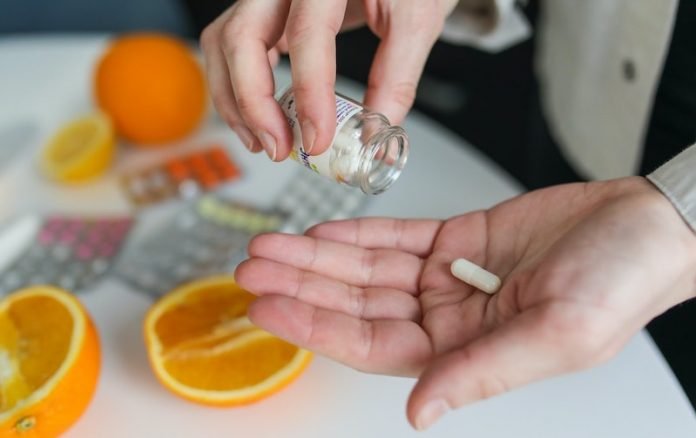
What are antioxidants?
Antioxidants are natural or man-made substances found in foods and dietary supplements that protect cells from the damage caused by free radicals (unstable molecules made by oxidation during normal metabolism).
Free radicals may play a part in cancer, heart disease, stroke, and other diseases of aging.
Some common dietary antioxidants include the following:
Vitamin C (ascorbate).
Vitamin E.
Flavonoids (such as soy isoflavones, green tea catechins).
Beta-carotene.
Glutathione.
How are antioxidants given or taken?
Antioxidants found in fruits, vegetables, and dietary supplements are taken by mouth.
Have any studies been done on antioxidants and drug interactions in people with cancer?
One study looked at antioxidant dietary supplement use before and after diagnosis in postmenopausal breast cancer survivors.
This study found an increased risk of death and a reduced chance of staying cancer free when antioxidant dietary supplements were used during chemotherapy and radiation therapy.
Another study found similar results for people with breast cancer who used antioxidant dietary supplements before and during chemotherapy.
Clinical trials of people with head and neck cancer who took vitamin E supplements looked at a compound in the supplements known as alpha-tocopherol.
Researchers studied alpha-tocopherol to see if it decreased adverse effects from chemotherapy and radiation therapy.
Although some clinical trials reported that alpha-tocopherol may reduce damage to the body caused by radiation therapy, other clinical trials found there was a higher risk of cancer coming back.
Have any side effects or risks been reported from antioxidants?
Antioxidant dietary supplements that are taken while being treated with chemotherapy or radiation therapy may reduce the chance of staying cancer free.
Some patients take antioxidants because they think the supplement will protect and repair healthy cells damaged by cancer drugs.
There is not enough evidence on antioxidant supplements to know if they are safe and effective as a complementary therapy when taken with standard cancer treatment.
Are antioxidants approved by the U.S. Food and Drug Administration (FDA) for use as a cancer treatment in the United States?
FDA has not approved the use of antioxidants as a treatment for cancer or any other medical condition.
Antioxidants are available in the United States in food products and dietary supplements. FDA does not approve dietary supplements as safe or effective.
The company that makes the dietary supplements is responsible for making sure that they are safe and that the claims on the label are true and do not mislead the consumer.
The way that supplements are made is not regulated by FDA, so all batches and brands of antioxidant supplements may not be the same.
Sign up for our newsletter for more information about this topic.
If you care about cancer, please read studies grape seed extract may help increase lifespan, reduce cancer, and this vegetable oil linked to spread of cancer.
For more information about cancer prevention, please see recent studies about how to reduce cancer fatigue, and results showing this nutrient is essential for preventing cancer, boosting immune system.
Source: National Cancer Institute




